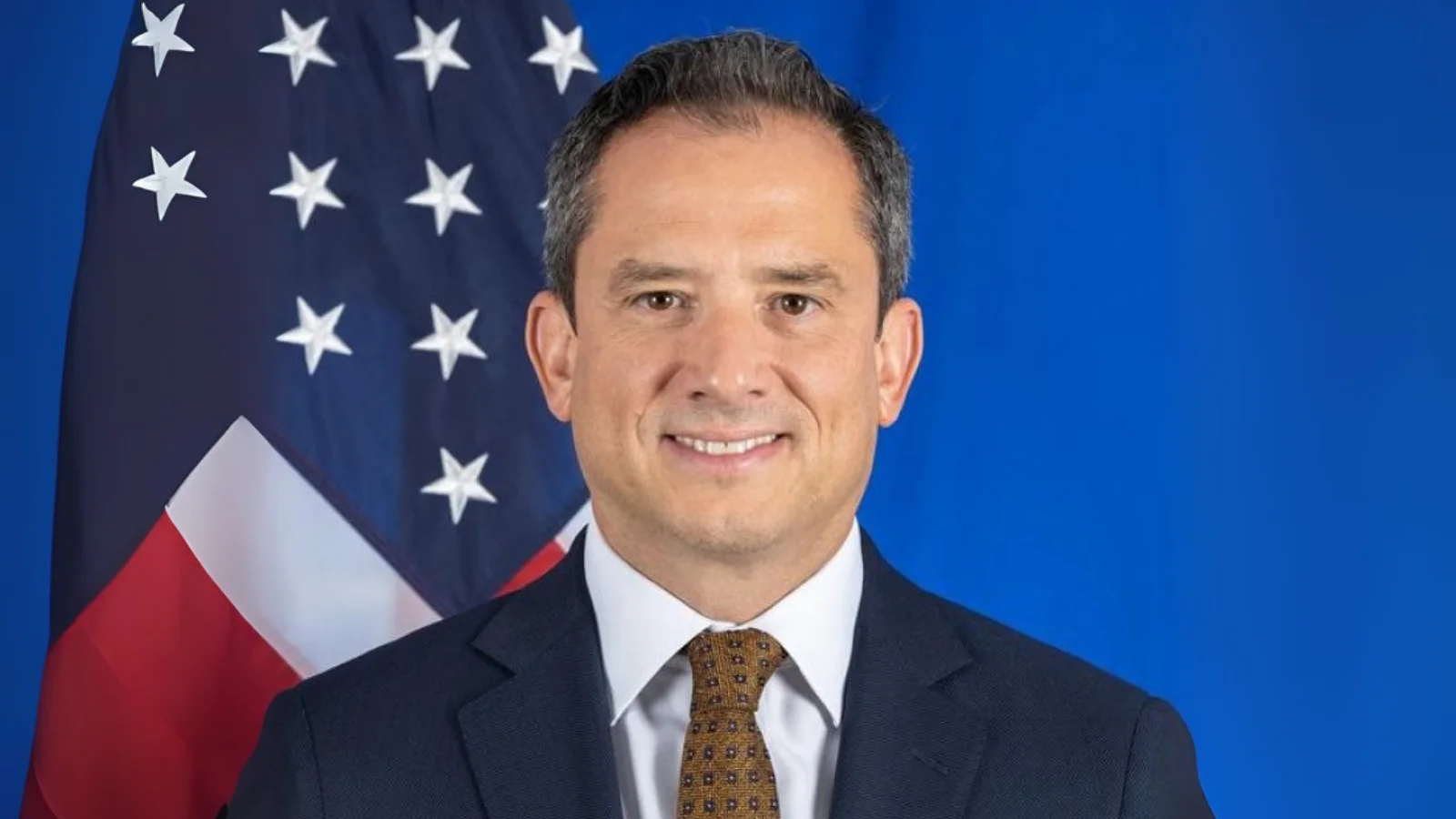On September 16, 2025, Chargé d’Affaires Palladino delivered closing remarks at the first day of the Geopolitical Summit organized by the Danube Institute and the Heritage Foundation in Budapest. The summit brought together statesmen, scholars, and thinkers to discuss the theme “The Future of Power: Finding Order in a Time of Chaos.”
Palladino began by thanking John O’Sullivan, Jay Carafano, and Hungarian hosts for organizing the event. He highlighted the significance of such a gathering in Budapest as evidence that “the search for order is not only alive, it is urgent.”
He acknowledged current global instability, stating: “And yes, we live in turbulent times. The post-war liberal order seems … dated. Strategic rivalries are sharpening. And the institutions that once promised stability must adapt or risk irrelevance.” Palladino referenced recent violence as an example of these challenges: “The turbulence of our age was brought home painfully by the vile assassination of Charlie Kirk. He was a tireless advocate for young Americans, and his voice resonated far beyond our shores. His murder is a stark reminder that political violence has no place in the West.”
He emphasized that chaos presents both a test and an opportunity for nations with deep civilizational roots: “A test of whether we remember who we are. An opportunity to recommit to what we cherish.” Palladino underlined shared values between Hungary and the United States: “We are allies because we share a conviction: sovereignty, faith, family, and culture are not outdated — they are oxygen. Borders matter. Families matter. Nations matter. Without them, nothing else endures.”
Palladino criticized some perspectives from Brussels regarding sovereignty and cultural identity but affirmed alignment between America and Hungary on these issues: “Too often in Brussels we hear the opposite: that sovereignty must be pooled, that borders are passé, that culture is something to be managed. America and Hungary know better.”
Addressing security cooperation within NATO, he stated: “NATO is strongest not when it issues communiqués, but when nations shoulder real responsibility. Paper promises don’t keep the peace — real investment does.” On energy collaboration he said: “Energy is not just a commodity. It is the essential component for growth and security. The United States has become an energy superpower. We are working with Hungary to diversify and secure its supplies.”
Regarding migration policy he remarked: “To surrender control of your borders is to surrender sovereignty itself…America has said so plainly. Hungary has acted on it.” On family policy he added: “A nation that weakens the family weakens itself…Every civilization rises or falls on whether it protects its children.”
Palladino described President Trump’s foreign policy approach as guided by national self-respect rather than selfishness: “Sovereignty is not selfishness. It is national self-respect…Nations that know who they are can work together.”
He recognized Hungary’s influence in Europe: “At the crossroads of Europe, it has shown that a mid-sized state with clarity of purpose can punch far above its weight.” He also welcomed debate among allies while reaffirming common convictions.
In closing remarks about future cooperation he outlined priorities including building networks among like-minded allies, strengthening defense ties, expanding energy partnerships to reduce dependency on hostile actors, increasing trade and investment links across the Atlantic—all while maintaining strong national identities.
“The United States stands with Hungary: not as a patron, not as a critic, but as a civilizational ally determined to forge order in a time of chaos,” Palladino concluded.

